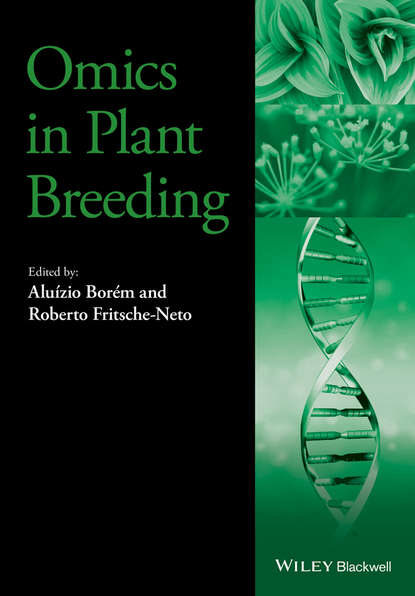Книга "Omics in Plant Breeding" представляет собой практическое введение в ключевые методы, основанные на омикс-технологиях, и их применение в селекции растений. Омикс-технологии, такие как геномика, протеомика и транскриптомика, используются в изучении биологии растений уже более десятилетия. С развитием этих технологий ученые начали применять их для улучшения сортов культурных растений.
Электронная Книга «Omics in Plant Breeding» написана автором Группа авторов в году.
Минимальный возраст читателя: 0
Язык: Английский
ISBN: 9781118821053
Описание книги от Группа авторов
Computational and high-throughput methods, such as genomics, proteomics, and transcriptomics, known collectively as “-omics,” have been used to study plant biology for well over a decade now. As these technologies mature, plant and crop scientists have started using these methods to improve crop varieties. Omics in Plant Breeding provides a timely introduction to key omicsbased methods and their application in plant breeding. Omics in Plant Breeding is a practical and accessible overview of specific omics-based methods ranging from metabolomics to phenomics. Covering a single methodology within each chapter, this book provides thorough coverage that ensures a strong understanding of each methodology both in its application to, and improvement of, plant breeding. Accessible to advanced students, researchers, and professionals, Omics in Plant Breeding will be an essential entry point into this innovative and exciting field. • A valuable overview of high-throughput, genomics-based technologies and their applications to plant breeding • Each chapter explores a single methodology, allowing for detailed and thorough coverage • Coverage ranges from well-established methodologies, such as genomics and proteomics, to emerging technologies, including phenomics and physionomics Aluízio Borém is a Professor of Plant Breeding at the University of Viçosa in Brazil. Roberto Fritsche-Neto is a Professor of Genetics and Plant Breeding at the University of São Paulo in Brazil.



















